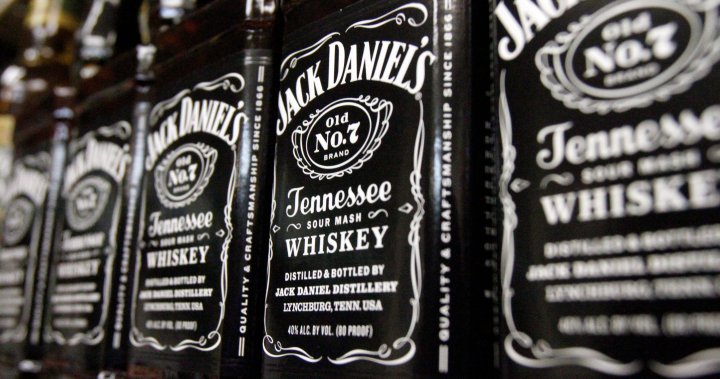After five months of empty shelves where American bourbons and wines once stood, Calgarians can finally raise a glass to the end of Alberta’s spat with the United States over liquor imports. It’s been a dry spell that left many local businesses scrambling and consumers reaching for alternatives.
I’ve spent the past week talking with Calgary liquor store owners, industry insiders, and government officials to understand just what this resolution means for our city’s hospitality scene.
“It’s like Christmas came early,” said Martin Kosik, owner of Kensington Wine Market, when I stopped by his shop yesterday. “We’ve had customers calling daily asking when their favorite bourbon would be back. Now we can finally give them good news.”
The trade dispute, which began in April when the provincial government suspended U.S. alcohol imports, ended last week after negotiations between Alberta and Washington officials. The province had implemented the ban in response to American tariffs on Canadian aluminum products, creating significant ripple effects throughout Calgary’s restaurant and retail sectors.
For Jeremy Coleman, bar manager at a popular 17th Avenue establishment, the timing couldn’t be better. “With Stampede around the corner, we were facing some tough decisions about our cocktail menu,” he told me. “American whiskeys are fundamental to what we do here. We’ve been making do with Canadian alternatives, but our customers have definitely noticed the difference.”
The Alberta Gaming, Liquor and Cannabis Commission (AGLC) confirmed that import permits have already been approved, with shipments expected to arrive on Calgary shelves within two weeks. This quick turnaround suggests government officials recognized the economic impact the ban was having on local businesses.
According to data from the AGLC, Alberta imports approximately $60 million worth of U.S. liquor products annually, with American whiskeys and California wines being particularly popular among Calgary consumers.
The economic implications extend beyond just the price of a bottle. The Scotch Malt Whisky Society of Calgary estimates that specialty retailers in the city saw revenue decreases between 15-20% during the import suspension.
The dispute had created unusual inventory situations across the city. Certain rare American bourbons were selling for nearly double their usual prices as supplies dwindled. Meanwhile, local distilleries reported increased interest in their products.
“It was a challenging period, but it did direct more attention to Alberta-made spirits,” said Natalie Windsor, who operates a craft distillery in the Inglewood neighborhood. “We saw a 30% increase in tasting room visitors. I’m hoping some of those new customers stick with us even as the American products return.”
Provincial Trade Minister Nate Horner explained that the resolution came after productive discussions with U.S. trade representatives. “We’ve secured assurances regarding fair treatment of Alberta exports, which was our primary concern,” Horner stated during a press conference I attended Tuesday.
What remains unclear is the exact nature of these “assurances” and whether they represent a permanent solution or merely a temporary ceasefire in ongoing trade tensions. Several industry analysts I consulted expressed skepticism about long-term stability.
“Trade disputes rarely have clean endings,” noted Dr. Emma Richter, economics professor at the University of Calgary. “While consumers will be happy to see their favorite products return, businesses may need to prepare for potential future disruptions as broader Canada-U.S. trade issues continue to evolve.”
For Calgary’s hospitality industry, already recovering from pandemic-related challenges, the resolution couldn’t come at a more critical time. Summer tourism season typically drives significant alcohol sales, particularly during Stampede when visitors flood the city.
The provincial government has suggested the import suspension achieved its intended purpose of bringing U.S. officials to the negotiating table. However, local business owners I spoke with questioned whether the strategy was worth the economic pain it caused.
“I understand the government needed to take a stand, but small businesses like mine ended up bearing the brunt,” said Kosik. “We lost tens of thousands in sales during what should have been our busiest months.”
As American products begin flowing back into the province, consumers may notice some price increases. Several distributors indicated that shipping delays and increased logistics costs would likely be passed along to consumers, at least initially.
The experience has also prompted some local businesses to reconsider their inventory strategies. Several restaurant owners mentioned plans to maintain more diverse supplier relationships to protect against similar disruptions in the future.
“We’re definitely going to keep supporting local distilleries that stepped up during this period,” Coleman explained. “But we’re also looking at more international options to reduce our dependency on any single market.”
For everyday Calgarians, the end of the import ban simply means more choices at their neighborhood liquor store. Whether this trade resolution represents a new chapter in Alberta-U.S. relations or merely a pause in ongoing tensions remains to be seen.
What’s certain is that for now, Calgary’s bars, restaurants, and liquor stores are breathing a collective sigh of relief as they prepare to restock their American favorites – just in time for patio season.







